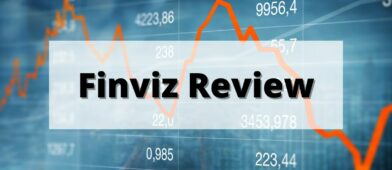Pandas are pretty much awesome.
They live one of the most casual lifestyles. For 14 hours of each day, they eat.
They need to eat 40% of their own weight each day (12-38 kg!) and they prefer to eat golden bamboo.
Chewing bamboo kind of takes a while (go ahead, give it a shot) – that’s why they need to spend 14 hours a day on it. And it’s exhausting.
So when they aren’t eating… they’re sleeping. That’s the other 10 hours.

I love eating and sleeping as much as the next person (OK, maybe my lovely wife loves sleeping more… but I don’t blame her!) but I need more in my life.
While it’s hard to see ourselves as pandas, human beings were once in a similar scenario.
Before we learned to farm, we foraged. Foraging is hard and time-consuming work. You wander around trying to kill animals and find plants and berries that won’t kill you. Eventually, humans beings figured out how to farm. Food security improved.
Farming is still hard and time-consuming but it leads more free time. Plants will grow in between the times you spend on farming tasks. When you are able to create your food, rather than wandering around to find what’s naturally occurring, there’s more stability. You have more time to pursue other non-food creating tasks. Those tasks might create more prosperity for you and your family.
(This is a gross oversimplification, I admit, but for the purposes of the analogy roll with it)
Table of Contents
Modern Day Life is No Different
We don’t eat only bamboo and most of us don’t farm, but our basic needs are still related to physical well-being: food, water, and shelter.
Not only do we need it, we need to have and feel secure in our access to it. It’s hard to make long-term plans if you don’t know where your next meal will come from, even if your belly is full today.
If you work minimum wage, your conversion rate from hours to dollars is low. All of your income is derived from active work – you’re a proverbial hunter-gatherer. If you don’t hunt or gather, you don’t eat.
You have to work an hour or two just to buy a meal each day. You have to work a few more hours to pay for your house and transportation to your work. You see where this is going.
Investing is Spending with Long-Term Payoff Goals
To move ahead you need to save money and invest it in skills and equipment. A farmer buys heavy machinery to help plant and harvest faster. A farmer may take courses on proper water management and agricultural cycles to increase yields and lower costs.
You will need to improve you, your tools and systems so you can earn more per hour.
The modern-day forager is someone who works a non-skilled minimum wage job, takes the bus, and rents a home.
Imagine a stockroom employee at Macy’s. That person can work anywhere – there are retail stores with stockrooms in New York City, Topeka, Provo or San Francisco (though not recommended – a family of four earning less than $100,000 a year qualifies for affordable housing in SF).
These are the areas you invest in:
- Your near-term financial security – An emergency fund
- Your equipment – These are the physical tools you use to get to and within your job
- Your skills & education – These are investments in courses and skill training
- Your future – These are investments in future income streams, whether it’s in retirement assets or taxable accounts.
Investing in Near Term Security
The first investment is the emergency fund. An emergency fund ensures that the emergencies of life don’t derail you for too long. Without a fund, small emergencies become big ones and big ones become catastrophic.
The emergency fund helps you weather inevitable emergencies. Let’s say you miss the bus and if you don’t get a ride to the mall, you’re going to miss the start of your shift. That’s bad. Your emergency fund can help you cover the $10 Uber ride (see our best Uber hacks) so you make it on time. The small emergency stays small.
Investing in Equipment

After your financial moat, it could be time to invest in transportation security. Rather than riding the bus, buy a car. It lets set your schedule, decouples you from the bus schedule, and helps reclaim time. It takes us fifteen minutes to drive to the mall but taking the bus (which comes hourly) takes 59 minutes. A car saves ninety minutes each day.
A car is an investment in your system. It improves your efficiency in converting time into money.
You can, and should, make investments in yourself. That’s how you improve your earning potential and move up the hierarchy of needs.
A stockroom employee makes minimum wage because it’s a relatively nonskilled role. They’re making more people every day and someone can learn the job of a stockroom relatively quickly. A greater supply of workers means earnings will also be depressed. There will be someone willing to work that job for minimum wage.
That’s why you need to move up the organization and into skilled positions that a high school kid can’t fill. That’s where investments in yourself (once you’ve taken care of the rest) are important. You need to build the skills necessary for you to take on bigger and less competitive roles.
Investing in Skills & Education
Before going out on my own, I worked for two large defense contractors – Northrop Grumman and Booz Allen Hamilton. I was working a skilled position, by definition, but universities around the country are churning out Computer Science majors each year. A very large percentage of them were going to be smarter, harder working, and better than me.
I wasn’t in a nonskilled role. I wasn’t making minimum wage.
But I was still subject to the same fundamental model.
I didn’t fear a high school graduate but there are plenty of college graduates.
I had to differentiate.
I had to level up. I invested in myself by pursuing an MBA at Johns Hopkins University. The company paid for the program but I invested the time.
The transition from one level to another in the hierarchy of needs is always the same – a fixed up-front investment that improves your conversion rate on time into money. That investment may require money but not always. It always requires time.
Investing in equipment is necessary, especially in the begining, but investing in yourself is the best.
I was pushed to improve my academic credentials because I worked in a world where those things mattered. When a company bids for a contract, it needs to slot folks into various roles. The roles have requirements and academic credentials can stand in for years of experience. If memory serves, an MBA counted for two years of work experience.
The years of experience made it so that I wasn’t competing with newly minted graduates. They wouldn’t qualify for the slots on the contracts. I was more job security plus more opportunities.
But what’s more important, and less quantifiable, is how self-improvement stays with you for the rest of your life. A simple example was that several years ago I started running. Not fast or far, but got into the habit of running and now I can run 5K at a leisurely pace and not be sore the next day. I don’t run as often as I used to but I can still run five kilometers without feeling like I did when I started running and could barely manage one.
If you invest in self-improvement, it stays with you forever. No one can take it from you.
Investing in Your Future
At some point, you will run out of reasonable areas to invest in equipment and yourself – where doing so doesn’t increase your hourly rate. That’s when you want to look into passive income investments.
(This is separate from actual retirement accounts like 401(k) and IRAs, which you should be contributing to on a regular basis because time is your greatest asset)
You can work forever but you don’t want to have to work forever. By making passive income investments, you can generate future or near-future streams of income that are separate from your active time. The balance of your investment accounts represents far more than dollars and cents – they represent how much of your future time you get to control.
Investing in sources of passive income is the key to wealth building because your dollars work for you. If you build a dividend portfolio, those dividends can start paying for daily expenses like food and shelter so you don’t need to work as much. It’s, in part, how people are able to retire earlier than 65.
Invest in yourself, invest in your future.



Jim I think your column is awesome but while an MBA is great for some, it isn’t always attainable or practical for many of your readers. I am a college dropout and have been self employed for 20+ years, just sold my business. At my age, I don’t see going back to school as a viable option. I also don’t see myself starting off again at an employer in entry level jobs so I will most likely pursue other business opportunities, there are untold thousands of things you can do to make a great living, from sales of merchandise to… Read more »
I wasn’t advocating an MBA, I was just using it as an example because it’s what I took advantage of with my employer. I don’t think an MBA is all that useful, to be honest.
There are plenty of opportunities out there for people to earn money outside of an employer (or at least a primary employer, via a W-2). You still should invest in developing skills, whether it’s through formal education or with experience. You pay either way.
You had me at: run 5K at a leisurely pace.
More seriously, this is timely. Determining what and if there will be a “Long-Term Payoff” to an investment is the difficult part.
It always is!
Glad you enjoyed it. 🙂
I decided I needed a physical tune-up. I was not going to just give in at 72 and say, ‘oh well, this is all part of getting old’. I came upon a nutritional program called, GenoPalate. It requires a DNA analysis through either ‘Ancestry’ or ’23 and Me’. All that is required is to fill the supplied test tube with saliva. Then the results are connected to GenoPalate. What I got is a VERY comprehensive listing of the best foods for me to eat. They also offer recipes for an additional $40. I am creative in the kitchen so I… Read more »
That’s definitely one way to invest in yourself – I’m always skeptical of those “best foods for your DNA” services but even if it’s a placebo effect, you still feel an increase in energy so it works.
I really liked this article, thank you! Very good analogy between foraging in ancient times, and minimum wage jobs. And how investing was more like farming. I had never looked at it like that before.
Glad you enjoyed it!
Aloha Jim, thank you for the article. I like the Panda bear image. If Pandas were legal to own in the US, I would have one for my uninvited bamboo garden in the backyard.
Thanks for money saving info on Ubers. Currently Hawaii is out of rental cars unless we want to pay over $200/day for any car. During the Covid, they had to reduce their inventory to survive. I printed your suggestions and tips on Uber, and gave it to my husband. It’s his project. Have a great year!
I don’t think I’d want to own one but pandas are very cool – the craziness with rental cars in Hawaii is… crazy!